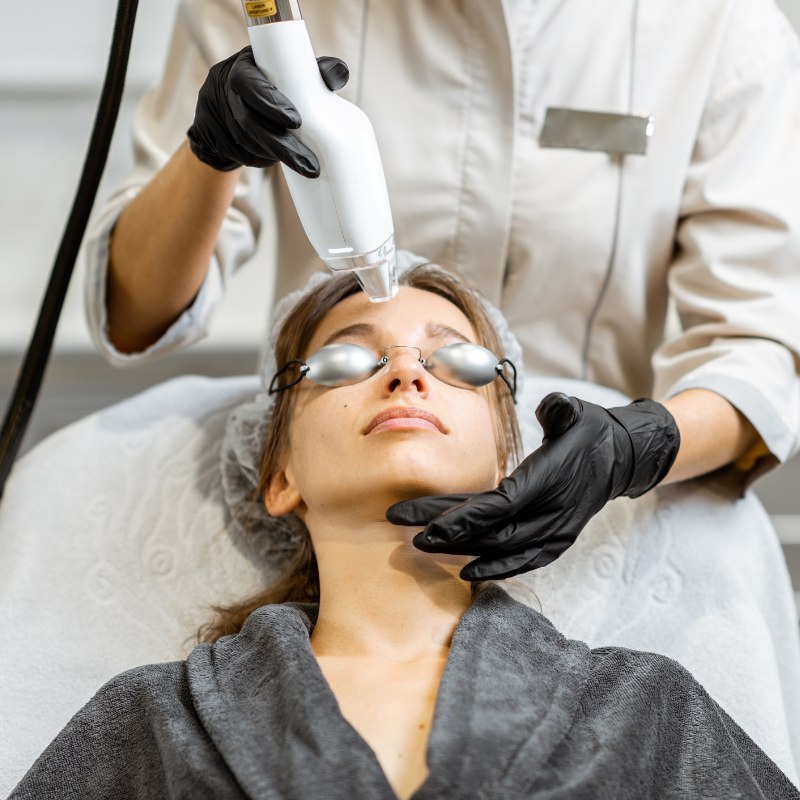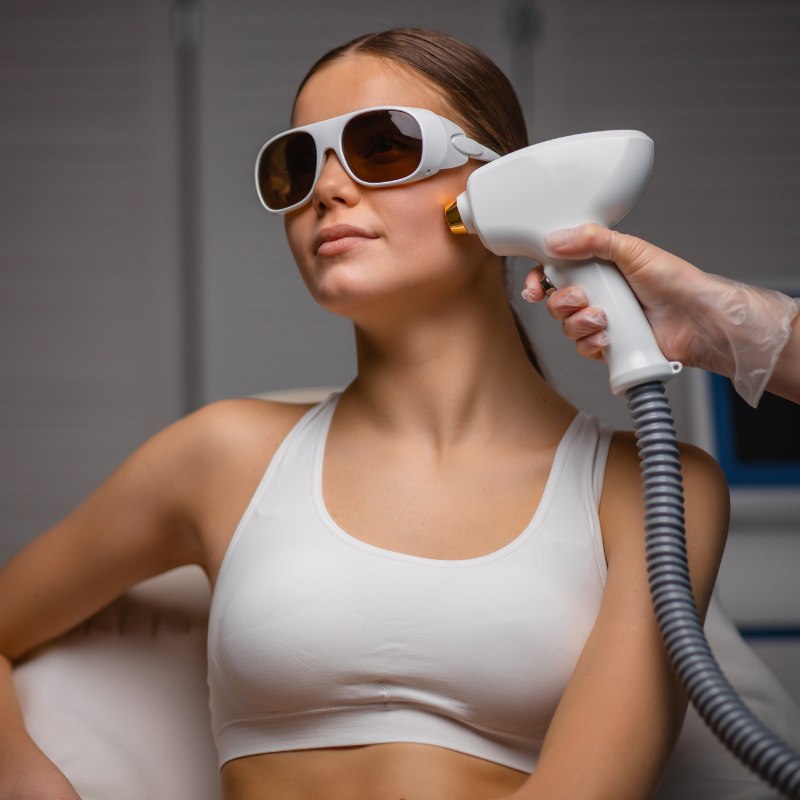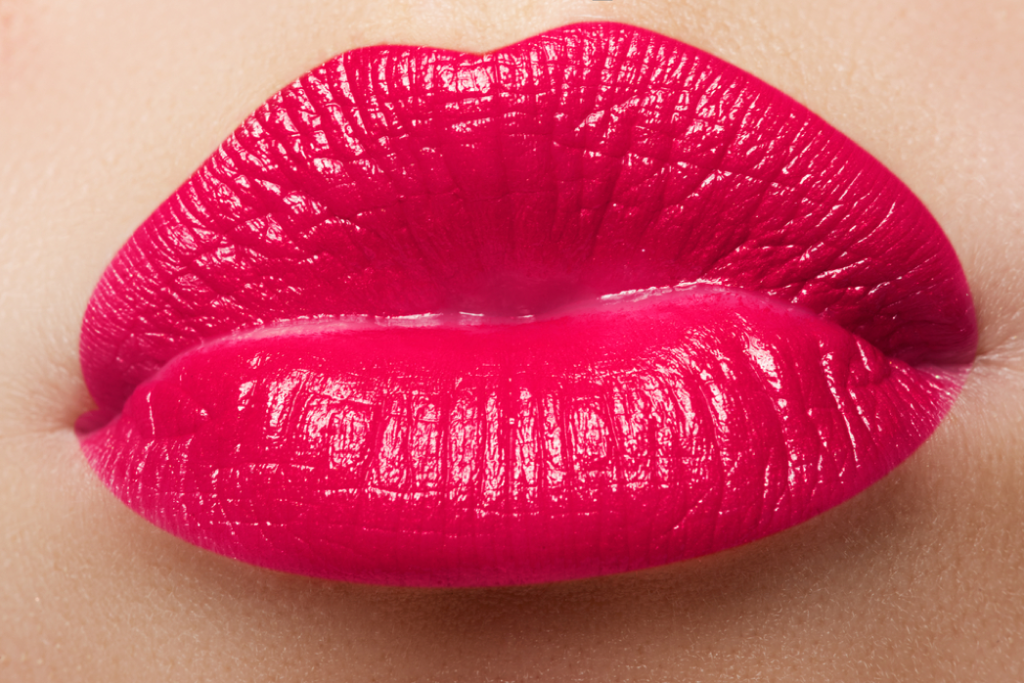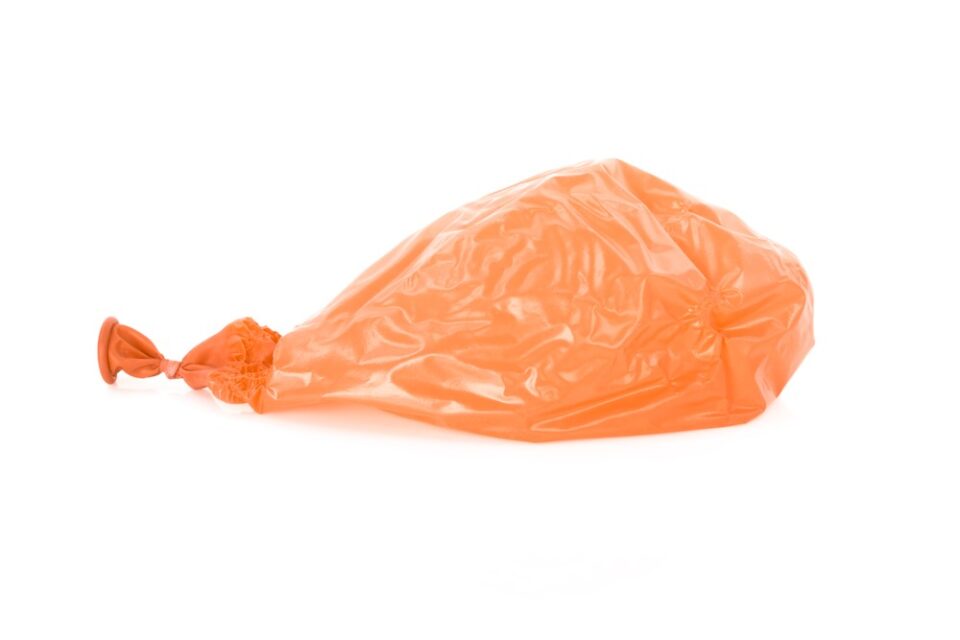
Ablative vs. Non-Ablative Lasers: Which Is Right for Your Skin?
Laser skin resurfacing treatments can keep your complexion looking healthy, bright, and youthful as you age. But before you schedule your first appointment, you’ll want to compare ablative vs non-ablative laser treatments. It’s important to learn as much as you can about the purposes of each of these treatment types. Once you do, you’ll have an easier time selecting the right one for your skin.
There isn’t a single laser treatment that’s perfect for everyone’s skin. Your skin type, specific complexion concerns, and treatment goals should all come into play when selecting a laser resurfacing treatment. Here are a few things to know about ablative and non-ablative lasers before choosing which one you want to try.
What Are Laser Skin Resurfacing Treatments?
Laser resurfacing treatments are nonsurgical aesthetic procedures that use powerful bursts of laser light to improve the texture and appearance of the skin. Heat from the laser penetrates both the surface and deeper layers of the skin. As it does, it causes controlled damage that activates your body’s healing reaction.
The body starts producing more skin-repairing and supporting components (including collagen and elastin) in the damaged areas. This leads to gradual improvements in skin firmness, laxity, texture, and appearance. Many people schedule regular skin resurfacing treatments to keep their complexion looking vibrant and youthful at every age.

Laser resurfacing treatments are nonsurgical aesthetic procedures that use powerful bursts of laser light to improve the texture and appearance of the skin. Heat from the laser penetrates both the surface and deeper layers of the skin. As it does, it causes controlled damage that activates your body’s healing reaction.
The body starts producing more skin-repairing and supporting components (including collagen and elastin) in the damaged areas. This leads to gradual improvements in skin firmness, laxity, texture, and appearance. Many people schedule regular skin resurfacing treatments to keep their complexion looking vibrant and youthful at every age.

Non-Ablative vs Ablative Laser Treatment: What Are the Differences?
If you’re interested in laser skin resurfacing, it helps to first learn the differences between ablative vs non ablative laser skin resurfacing. That way, you can make the most informed decision for your particular skin type and concerns. Ablative laser treatment removes the superficial layers of skin, while non-ablative treatment promotes collagen production without removing any skin. Both have their own advantages and disadvantages, and there isn’t a one-size-fits-all solution.
Your provider can recommend the right laser resurfacing treatment for you based on your skin type and complexion needs. However, the more informed you are about how these treatments differ, the more prepared you’ll be to make the final decision for your skin. Here are some of the most notable differences between non-ablative and ablative laser skin treatments.
Penetration Depth
Ablative lasers penetrate past the surface of the skin and into the deeper layers. They are extremely effective at removing stubborn blemishes, pigmentation concerns, and acne scars. Their intensity also makes them ideal for smoothing deep wrinkles and facial lines. If you’re looking for a dramatic complexion reset, you can’t go wrong with an ablative skin resurfacing treatment. A single treatment can produce noticeable, long-lasting results.
When comparing ablative vs non ablative laser treatments, consider what penetration depth and intensity you want. Non-ablative lasers don’t penetrate as deeply. They also don’t heat the skin up as much and don’t remove the outer skin layers. Therefore, they may be a good skin resurfacing solution for those with very sensitive complexions.
Because of their gentle nature, non-ablative lasers produce subtle results. You may not notice much of a difference after one treatment. However, with regular treatments, the positive benefits can build up over time and lead to various complexion improvements.
Treatment Goals

If you have minor skin issues like fine lines, mild pigmentation spots, or small acne scars, a non-ablative laser may be a great treatment choice. Its milder nature makes it a great solution for minor complexion woes that don’t require more advanced treatments.
Here are some common non-ablative laser treatment goals:
-
Minimizing fine lines
-
Reducing minor pigmentation issues
-
Improving skin texture
-
Stimulating collagen production
-
Delivering a healthier-looking complexion
When choosing between non ablative vs ablative laser treatments, the severity of your skin issues is an important factor. If you have deeper, more prominent skin issues, non-ablative treatments may not provide the results you want. Ablative treatments, on the other hand, are powerful enough to handle the toughest skin concerns. They vaporize the outermost layer of skin and portions of the epidermis to thoroughly resurface the skin.
Here are some of the top ablative laser treatment goals:
-
Improving severe sun damage
-
Reducing the appearance of acne scarring
-
Minimizing deep wrinkles
-
Improving significant skin laxity
-
Reducing hyperpigmentation issues
-
Restoring a youthful glow
Talk with your provider if you still have questions about which treatment intensity is a good fit for your needs.
Results
When you compare ablative vs non ablative laser treatment results, you’ll see some big differences. Since ablative layers completely remove the outer skin layer, they deliver dramatic, highly noticeable results after just one treatment. You should notice some results after just one week. However, full results typically take up to six months to develop. That’s because it takes months for the body to create enough collagen to noticeably tighten the skin.
Non-ablative treatments don’t offer such drastic skin improvements. Instead, they deliver much more modest results. You may not see much of a difference at all after a single treatment. However, a series of recommended treatments can lead to a gradual transformation that’s more noticeable with time.
Treatment Frequency
The results of a single ablative laser resurfacing treatment can last up to 12 months. Therefore, you may be able to maintain your new and improved complexion with just one to two treatments every year.
To get optimal results from non-ablative laser treatments, you’ll likely need to schedule an initial series of treatments. Most people schedule anywhere between three and six initial treatments, spaced 3-6 weeks apart. After that, a series of treatments once per year should help you maintain your improved complexion.

The results of a single ablative laser resurfacing treatment can last up to 12 months. Therefore, you may be able to maintain your new and improved complexion with just one to two treatments every year.
To get optimal results from non-ablative laser treatments, you’ll likely need to schedule an initial series of treatments. Most people schedule anywhere between three and six initial treatments, spaced 3-6 weeks apart. After that, a series of treatments once per year should help you maintain your improved complexion.

Risks and Side Effects
It’s important to compare risks and side effects between ablative vs non ablative laser treatments before deciding which type you want. Since non-ablative lasers don’t remove skin, they generally have milder risks and side effects. These may include swelling, redness, itching, and changes in skin color. More rarely, infection, scarring, and skin damage can occur.
The risks and side effects associated with ablative laser resurfacing tend to be a little more intense due to the rigorous nature of the treatment. They may include burning, redness, itching, swelling, and skin inflammation. After treatment, the skin may weep fluid and develop crusty scabs. All of these side effects should subside as the body heals itself. Rarely, infection, scarring, and changes in skin color may occur.
Recovery and Downtime

There’s a big difference in downtime when you compare ablative vs non-ablative laser treatments. Non-ablative treatments have minimal post-treatment downtime. It’s natural to experience some swelling and redness (resembling a sunburn). These symptoms typically go away in five days or fewer. Some people choose to return to work immediately. Others may take time off while waiting for their skin redness and inflammation to subside.
After ablative laser resurfacing, plan to take some time off work for recovery. You’ll probably have at least a week of discomfort, peeling, and redness. You’ll want to rest and give yourself time to heal after your treatment. You’ll also need to stay out of the sun until your sensitive skin becomes less raw.

There’s a big difference in downtime when you compare ablative vs non-ablative laser treatments. Non-ablative treatments have minimal post-treatment downtime. It’s natural to experience some swelling and redness (resembling a sunburn). These symptoms typically go away in five days or fewer. Some people choose to return to work immediately. Others may take time off while waiting for their skin redness and inflammation to subside.
After ablative laser resurfacing, plan to take some time off work for recovery. You’ll probably have at least a week of discomfort, peeling, and redness. You’ll want to rest and give yourself time to heal after your treatment. You’ll also need to stay out of the sun until your sensitive skin becomes less raw.
Cost
Non-ablative skin resurfacing treatments tend to cost less for a single session than their ablative counterparts. However, most people need more non-ablative treatments to get satisfactory results, so the costs add up over time. Talk to your provider for a more thorough cost comparison between these two treatments.
Ablative Laser vs Non Ablative Laser: Which Is Right for Your Skin?
Now that you know some of the major differences between ablative and non-ablative laser resurfacing treatments, it’s time to choose what’s right for you. Do you have major skin concerns you want to address, or do you simply want to refresh and rejuvenate your complexion? Are you looking for a single treatment that delivers immediately noticeable results, or a series of more subtle treatments? These types of questions can help you determine whether to go the ablative or non-ablative route.
If you’re concerned you’ll make the wrong choice for your skin type, don’t worry! You don’t have to make this important decision on your own. Your provider can provide personalized treatment advice during your consultation. Their goal is to help you select a treatment that’s appropriate for your skin and can help meet your aesthetic goals.
Keep in mind that you don’t have to choose just one treatment or the other. If you want, you can alternate between ablative and non-ablative treatments. That way, you can compare them to see which type you prefer. Remember to schedule adequate healing time between treatment sessions so you don’t end up damaging your skin.
Schedule an Ablative Laser Skin Resurfacing Treatment
It’s not easy to choose between ablative vs non-ablative laser treatments. However, you can’t beat ablative laser treatments if you’re looking for long-lasting, noticeable results after a single session. Calista Skin & Laser Center is proud to be a leading provider of C02 laser resurfacing in Colleyville. Whether you want to improve your skin tone or reduce the appearance of scars and wrinkles, this treatment delivers impressive results. To find out if this is the right treatment for you, contact us today at (817) 488-3838.
Schedule a consultation
Please fill out the form below or call us at 817-488-3838
By submitting this form you agree to be contacted via phone, text, and/or email.
Schedule a consultation
Please fill out the form below or call us at 817-488-3838
By submitting this form you agree to be contacted via phone, text, and/or email.



